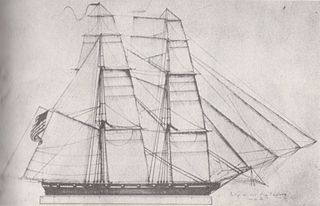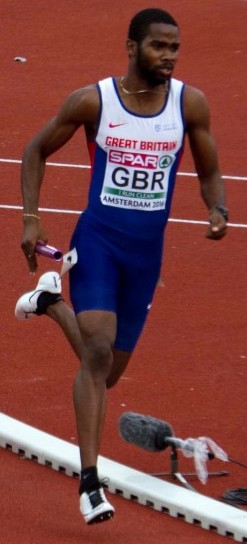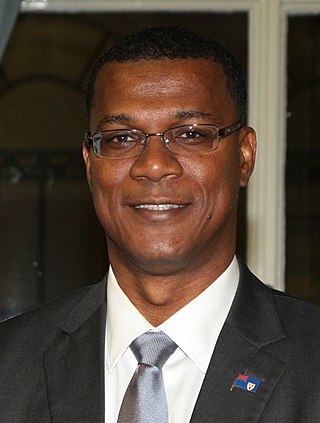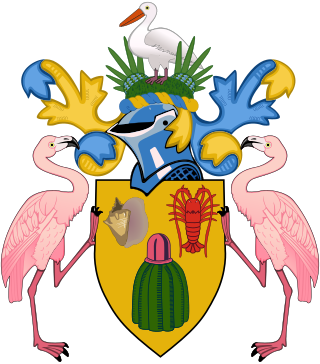
The Turks and Caicos Islands are a British Overseas Territory consisting of the larger Caicos Islands and smaller Turks Islands, two groups of tropical islands in the Lucayan Archipelago of the Atlantic Ocean and northern West Indies. They are known primarily for tourism and as an offshore financial centre. The resident population in 2023 was estimated by The World Factbook at 59,367, making it the third-largest of the British overseas territories by population. However, according to a Department of Statistics estimate in 2022, the population was 47,720.
Communications in the Turks and Caicos Islands

Before European colonization, the Turks and Caicos Islands were inhabited by Taíno and Lucayan peoples. The first recorded European sighting of the islands now known as the Turks and Caicos occurred in 1512. In the subsequent centuries, the islands were claimed by several European powers with the British Empire eventually gaining control. For many years the islands were governed indirectly through Bermuda, the Bahamas, and Jamaica. When the Bahamas gained independence in 1973, the islands received their own governor, and have remained a separate autonomous British Overseas Territory since. In August 2009, the United Kingdom suspended the Turks and Caicos Islands' self-government following allegations of ministerial corruption. Home rule was restored in the islands after the November 2012 elections.
The music of Turks and Caicos Islands is best known for its ripsaw music. It is accompanied by an array of instruments, including maracas, triangles, box guitar, conga drums, goat and cowskin drums, accordion, concertina and, most prominently and uniquely, the carpenter saw.
Ripsaw is a musical genre which originated in the Turks and Caicos Islands, specifically in the Middle and North Caicos. A very closely related variant, rake-and-scrape, is played in the Bahamas. Its most distinctive characteristic is the use of the common handsaw as the primary instrument, along with various kinds of drums, box guitar, concertina, triangle and accordion.

Belonger status is a legal classification normally associated with British Overseas Territories. It refers to people who have close ties to a specific territory, normally by birth or ancestry. The requirements for belonger status, and the rights that it confers, vary from territory to territory.

USS Chippewa was a brig built in 1815 at Warren, Rhode Island, under the direction of Commodore Oliver Perry, and sent to New York City to be outfitted and manned. Chippewa sailed from Boston, Massachusetts, 3 July 1815, with Lieutenant George C. Read in command, as a part of a squadron under the command of Commodore William Bainbridge. It was intended to go to the Mediterranean for use against the Barbary pirates based in North Africa.
Nathaniel Joseph Selver Francis was a Turks and Caicos Islander politician who served as the 4th Chief Minister of the Turks and Caicos Islands from 28 March 1985 until 25 July 1986, when he was forced to resign after charges of corruption and patronage were leveled against him.

Middle Caicos is the largest island in the Turks and Caicos Islands. To the west, it is separated from North Caicos by Juniper Hole, and to the east, from East Caicos by Lorimer Creek, both narrow passages that can accommodate only small boats. The island is known for its extensive system of caves and its significant Lucayan Indian archaeological sites. The island is connected to North Caicos via a causeway. Middle Caicos was previously called Grand Caicos, although this name is not used today.

East Caicos is the fourth largest island in the Turks and Caicos Islands. To the west, it is separated from Middle Caicos by Lorimer Creek, a narrow passage that can accommodate only small boats. To the south is South Caicos. East Caicos has no inhabitants.
Mahala Wynns is a Turk and Caicos Islander politician who served as the Deputy Governor of the Turks and Caicos Islands (TCI) from 9 August 2006 to 15 October 2013. She was also the Acting Governor of the Turks and Caicos Islands in 2005 and 2008.
Trouvadore was a Spanish slave ship that was shipwrecked in 1841 near East Caicos in the course of a run transporting Africans to be illegally sold to the sugarcane plantations in Cuba. As the United Kingdom had a treaty with Spain prohibiting the international slave trade and had abolished slavery in its colonies in 1833, it freed the 192 slaves who survived the wreck. Individuals and families, a total of 168 Africans, were placed with salt proprietors for apprenticeships in the Turks and Caicos Islands; the remaining 24 Africans were settled in Nassau.

The Turks and Caicos Islands Rugby Football Union, or TCIRFU, is the body managing rugby union in the Turks and Caicos Islands. The TCIRFU has its head office and grounds on Providenciales, where Turks and Caicos rugby union international matches are played. In addition the Union also trains on Grace Bay beach on Providenciales.
Easher Parker is a Turks and Caicos Islander model and beauty pageant titleholder who was crowned Miss Turks and Caicos 2011 on June 8, 2011 at the Regent Palms Hotel in Grace Bay.

Delano Williams is a British sprinter, originally from the British Overseas Territory of the Turks and Caicos Islands. In June 2013, it was confirmed that Williams would henceforth compete for Great Britain, as was his right by dint of the right to British citizenship of Turks and Caicos Islanders. Williams trains with the Racers Track Club in Jamaica.

Rufus Washington Ewing is a Turks and Caicos Islander politician and medical doctor who served as the 3rd Premier of the Turks and Caicos Islands from 13 November 2012 to 20 December 2016. He was elected Premier of the Turks and Caicos Islands in the 2012 general election. He was the islands' first premier since the government of the United Kingdom suspended the office in 2009, temporarily imposing direct rule under the office of the Governor of the Turks and Caicos Islands, due to corruption allegations against the government of Michael Misick.

Turks & Caicos is a 2014 political thriller television film, written and directed for the BBC by the playwright David Hare. It follows Page Eight, which aired on BBC Two in August 2011 and is followed by Salting the Battlefield.

Black Bermudians, African Bermudians, Afro-Bermudians or Bermudians of African descent, are Bermudians with any appreciable Black African ancestry. The population descends from Africans who arrived in Bermuda during the 17th century as indentured servants and slaves, mostly via Spanish, or former Spanish, territories or Spanish and other ships wrecked at Bermuda or captured by Bermuda-based privateers.

"This Land of Ours" is the local national song of the Turks and Caicos Islands, composed by Dr. Rev. Conrad Howell. As a British Overseas Territory, the official national anthem is "God Save the King".

The potential political association of the Turks and Caicos Islands along with Canada is a recurring topic perennially discussed at times in various cross sections of society of both nations, and usually emerging in discourse during northern hemispheric winter. The islands are currently a British Overseas Territory under the sovereignty of the United Kingdom which covers the territory's foreign affairs and national defence.












